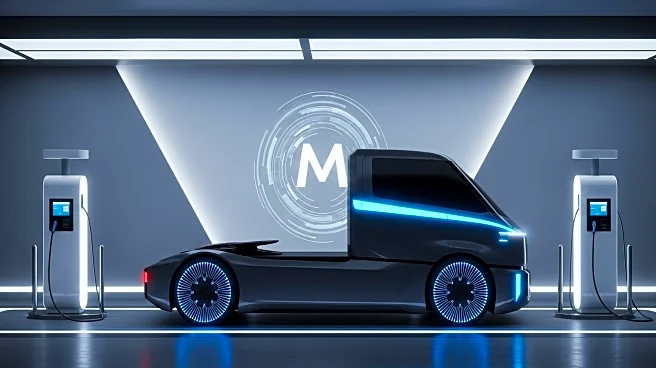What is the story about?
What's Happening?
General Motors (GM) is advancing its electric vehicle lineup by developing affordable electric trucks capable of 400 miles on a single charge. This development is facilitated by a high-density manganese battery, which recently won the 'Battery Innovation of the Year' award in Detroit. GM has been working on this technology with LG for a decade, and mass production is set to begin in 2027, with the trucks expected to be released in 2028. The manganese battery offers higher energy density compared to traditional lithium ferrophosphate batteries, making it a cost-effective alternative to nickel-based batteries. Additionally, GM is establishing a rare-earth magnet supply chain in the U.S., a strategic move following China's ban on rare-earth exports.
Why It's Important?
The introduction of GM's manganese battery technology represents a significant shift in the electric vehicle industry, potentially lowering costs and increasing accessibility for consumers. By localizing production and supply chains, GM is reducing dependency on foreign resources, particularly from China, which has imposed restrictions on rare-earth exports. This move not only strengthens GM's competitive position in the North American market but also aligns with broader efforts to enhance energy independence and sustainability in the U.S. automotive sector. The development could lead to increased adoption of electric vehicles, contributing to environmental goals and economic growth.
What's Next?
GM plans to begin mass production of its manganese-rich batteries in 2027, with the release of affordable 400-mile electric trucks scheduled for 2028. The company is also expanding its rare-earth magnet manufacturing facilities in the U.S., which will support both its automotive production and government contracts. As GM continues to innovate in battery technology, other automakers may follow suit, potentially leading to a broader industry shift towards manganese-based solutions. Stakeholders, including consumers, environmental groups, and policymakers, will likely monitor these developments closely.

















